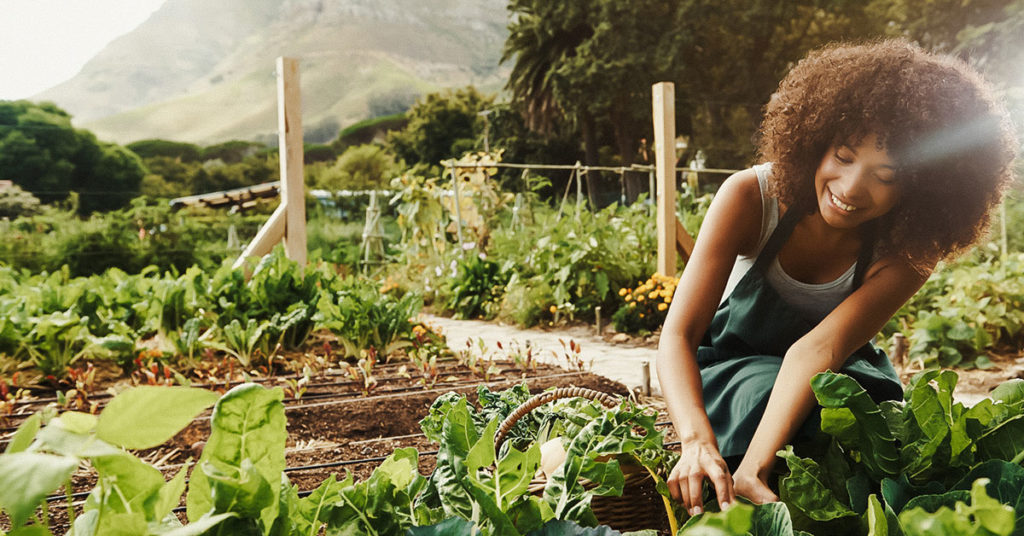U.S.-based nonprofit the Afro-Vegan Society (AVS) is celebrating Black History Month with Veguary — a month-long vegan pledge accompanied by free online support and programs that center the Black experience within intersectional veganism.
“Living vegan gives us the opportunity to take a stand against the many forms of oppression built into our current food system — from health disparities in marginalized communities and environmental racism to slaughterhouse workers’ rights violations and the exploitation and abuse of animals,” AVS Founder and Executive Director Brenda Sanders told LIVEKINDLY.
“This campaign is purposefully situated in the month of February — Black History Month in the United States — to highlight the contributions of Black trailblazers, and the many benefits of vegan living in our communities,” reads AVS’s description of Veguary.
What is Veguary?
AVS provides free virtual resources as well as community support via a private Facebook group to all who agree to take the 28-day Veguary pledge to eat plant-based.
Each day, participants can access vegan recipes, online cooking demos, virtual education sessions, discussion panels, and live Q&A sessions, along with exclusive prizes and discounts from vegan brands such as Upton’s Naturals, Hungry Harvest, Kinder Beauty Box, and more.
The event also celebrates Black vegan trailblazers such as the academic, writer, and activist Angela Davis, Black Vegetarian Society of New York founder Tracye McQuirter, and author Aph Ko. According to AVS, its mission is to “offer information, resources and support to encourage and inspire people in marginalized communities to transition to vegan living.”
So far, AVS has confirmed over 20 Black vegan speakers for Veguary including outspoken activist and Olympic skier Seba Johnson, celebrity chef Rain Truth, and critical care physician Dr. Milton Mills, who featured in 2017’s documentary What the Health.
Veganism as anti-oppression
Veguary education sessions include Optimizing Your Space to Grow Food with Christin Riddik and How to Support Adrenal Health with Samantha Salmon. While cooking demonstrations include how to make plant milk at home, how to make a “delicious smoothie” with beans, and how to make black bean sweet potato burgers.
Programs will also cover how to transition to a vegan lifestyle and the role and legacy of plant-based food within Black communities, in addition to providing general health and wellness information. Throughout, AVS will explore how to make plant-based food accessible in marginalized communities and how veganism can be part of a holistic anti-oppression stance.
“Living vegan helps us to see that oppression stems from the devaluing of life,” explained Sanders. “Once we connect the dots, we can stand firmly against all forms of oppression.”


